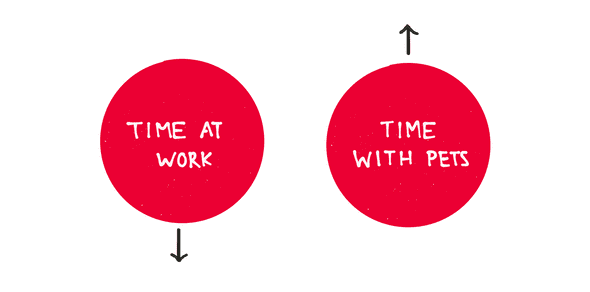Due to coronavirus, a remote work experiment has been forced on all.
For some companies, this will be a test they may have never desired. And for others, it represents an acceleration of a change they were already making. Major companies have announced becoming digital by default.
As of today, Shopify is a digital by default company. We will keep our offices closed until 2021 so that we can rework them for this new reality. And after that, most will permanently work remotely. Office centricity is over.
— tobi lutke (@tobi) May 21, 2020
Remote work doesn’t work for everyone, so it can’t be a total change. Some jobs require a physical presence, like plumbers or electricians. But their are a large swathe of jobs that will work in a remote environment. Without discussing what that ultimate percentage ends up being, I’d suggest it’s big enough to be significant.
Given this possibility of significant change, it’s interesting to consider the second-order effects. From an entrepreneurial and investment perspective, who benefits when people are home more? Who wins when we go into work less? What changes?
I’ve seen some of these changes well discussed in the media. Amazon benefits. Food delivery companies benefit. WeWork doesn’t. Let’s consider some of the less obvious consequences of remote first working.
Increased Demand for Pets
People love pets. For some would-be pet owners, office work is a blocker. By being at the office all day, they are unable to train a pet or feel bad if they’re not around. Remote work removes this blocker. Expect more new puppies. Remote work could be a boom for the pet industry. Breeders, veterinary services and animal insurance stand to benefit.
Athleisure Brands = Default Clothes
If people don’t go to the office, they don’t need ‘work clothes’. This line between work wear and normal clothes has been eroding for a while and will continue in a larger way. From the comfort of home, I expect people will be wearing the athleisure brands they love already with increased frequency. A win for brands like Nike, Lululemon, etc.
Increased Home Office Spending
What do you have in your office that you might want at home? A second screen? A whiteboard? A Zoom room? People will invest a bit of money to have such productivity tools at home. Some people will go the whole way and invest significantly in a home office. I can imagine building companies offering specific home office conversion packages.
Reversal/Slowdown of Podcast Trend
Podcasts have grown significantly over the last five years, both in listening and advertising dollars. If people are commuting to work less, does that change? Many people use the commute to work as their prime time for audio content. At home, do they switch to other forms of content?
Suburb Living
In most Western countries, their has been extreme urbanisation. This has led to denser cities and more expensive city centres. Does remote work unleash a boom in suburban living? In the UK, we have vast and beautiful countryside. Without offices, I can imagine areas being repurposed for co-living plots with large outdoor space, better connectivity and more reasonable prices.
There will be many more changes too. It will be fun to see which entrepreneurs and investors stand to win from a remote revolution.
[Update - 7th July 2020] - @chris_herd shared some further useful predictions.
The 2020s are the Remote Work decade
— Chris Herd (@chris_herd) July 5, 2020
A few predictions of what is likely to emerge
[ a thread ] 💻🏠🌍
